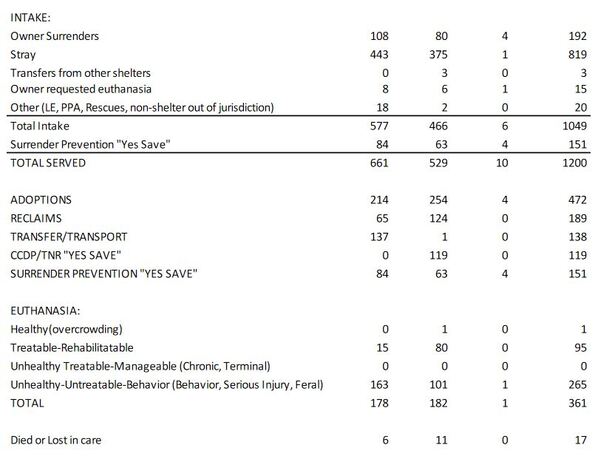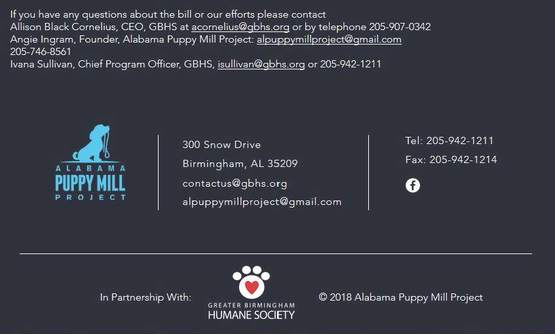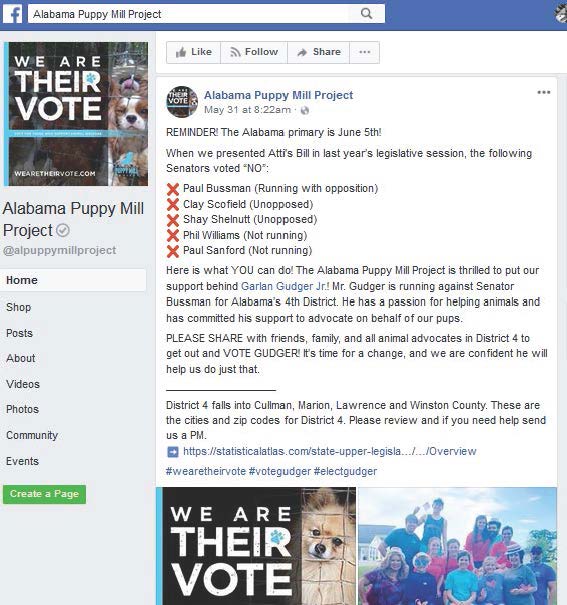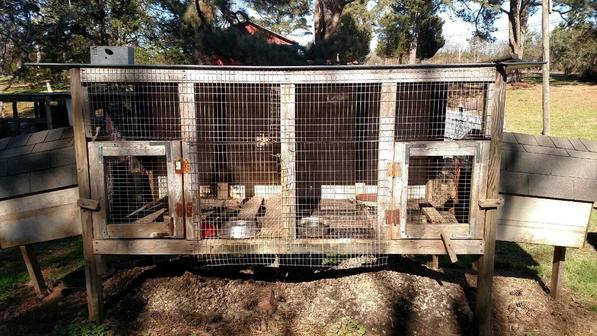|
There is a bill pending in the Colorado Legislature I firmly oppose because it is dangerous. House Bill 21-1120. I do not live in Colorado so you may ask, “why do you care about that bill?” I care because laws can be infectious both for the good and the bad. A bad law in one state can spread to others and I think it’s up to all of us to keep that from happening. Some explanation is in order. When I first learned at what was happening at the shelter in the city where I work over 15 years ago, I was shocked, angry, upset, and emotional. Like most Americans, I presumed that animals died in shelters because they were suffering. As I have blogged about before and wrote about in my book, I had a rude awakening in the summer of 2006 when I learned that healthy and treatable animals died at the shelter every day for no other reason than that is what had happened for years. “Catch and kill” and “first in, first out” were the status quo. I was like most people who probably should have known what was happening at the shelter, but just did not. It had not been on my personal radar. This unwelcome epiphany led me to a journey of educating myself about why this was happening not just in my area, but across the country. I came to realize that animal shelters in our country are, for the most part, our public shame. We call ourselves animal friendly and we say we cheer for the underdog while we hold our values above those of other cultures. Shame on us. Part of my education was learning about something called the Asilomar Accords. This was essentially a meeting of the minds in animal welfare which was held in Pacific Grove, California, in 2004. The stated goal of the Accords was to build “bridges across varying philosophies, developing relationships and creating goals focused on significantly reducing the euthanasia of healthy and treatable companion animals in the United States.” That may sound like great goals. What really happened was that the Accords focused more on people and not offending anyone and less on saving animals. The outcome was definitions for a series of words and phrases which are used to classify animals in shelters: Healthy Treatable/rehabilitatable Treatable/manageable Unhealthy and untreatable We are now almost 20 years removed from the Accords. The result has been not an increased focus on life-saving, but use of words by shelters which are inconsistent with the words are used by the public. The Accords have been used to categorize animals who could have, and should have, been saved, but instead were killed after having been put into a category that attempts to make that action more acceptable in some bizarre way. No one would dispute that an animal who is suffering or irremediably ill should be euthanized. But what about neo-natal animals? Old animals? Blind or deaf animals? Animals with conditions like epilepsy, megaesophagus, Wobbler’s Syndrome, paralysis, allergies or broken limbs? What about community cats? What about animals who get sick only after they enter a shelter or animals who develop behavior issues in the shelter due to the shelter environment itself? I think all these animals should be saved. Progressive shelters do save them. Regressive shelters do not. The words from the Accords are used as political cover to classify animals and then end their lives. It happens every day and may be happening in the community where you live. This brings me back to Colorado House Bill 21-1160, called the Care of Dogs & Cats in Pet Animal Facilities. This bill is the Colorado version of the Accords, but worse because it says so little so poorly. It hinges on the definitions of two words that are not well defined: healthy and safe. Sound familiar? Much like the Accords have been used to classify and then destroy animals for almost two decades, this bill creates a license to kill. At the heart of the bill are definitions for the words “healthy” and “safe.” The fact that the bill does not define those words more specifically or by referring to an evaluation matrix is terribly problematic. This means that animals are put at risk for conditions or behavior which may lead to their death unnecessarily, some of which may have been created by the shelter environment itself. The bill also refers to a concept called Socially Conscious Sheltering which I have blogged about before; the words sound positive and they are. The issue is when those words are used to end the lives of animals needlessly. I know it can be hard for people outside of animal welfare circles to believe that animals in shelters are destroyed for having been classified using words, but it happens every day. Animal shelters use words like healthy, unhealthy, treatable, untreatable, safe and unsafe – all of which are open for interpretation - while making it sound like the animals were saved from some fate worse than death. Also not included in the bill is any language setting forth the qualifications of the people making decisions on whether animals are considered healthy or safe and, by extension, which animals live or die. Is that a decision made by a veterinarian who is trained in shelter medicine? Does it involve evaluation by a trained behaviorist who evaluates dogs outside of the shelter facility itself (since many fear-based behaviors are caused by the way in which dogs are traditionally housed. We must remember that the animals who could pay the ultimate price from this bill are not just numbers on a sheet of paper. They are living, sentient beings who are worthy of our very best, because that is what the public expects. The dog destroyed may be our own who is so scared in a shelter he shows his teeth or cowers in a kennel corner. The cat destroyed may have been our neighbor's beloved pet who presented as feral out of fear because she had never been outside of her own home. I learned long ago that statutory law is a tricky thing; words in a law are there for a reason and if words are not there, that is with intent. If the same bill can be read by ten different people who come away with ten different interpretations, the bill is fatally flawed. A bad bill is worse than no bill. Once it becomes law, it can be complicated to say, "oh, no. That's not what we meant or what we intended." This is one of those bills. I have heard from many people that they interpret the wording of the bill differently than I do. That alone is a red flag which tells us this bill must be stopped to avoid taking Colorado back in time rather than making it more progressive. I applaud any city, county or state which decides to take proactive steps to improve the lives of pets in need and to help them either get back home or get to new homes. House Bill 1160 is not that bill.
If you live in Colorado, I encourage you to read the latest version of the bill and then consider stating your opposition to the bill. It has already made it through the House and is set to be heard by the Senate Agricultural and Natural Resources Committee on April 22, 2021. You can email the committee members in addition to your own state senator. You can also sign up to testify remotely or using written testimony, which is what I did. If you do not live in Colorado, you can still have an opinion on this bill. The bill is backed by some organizations with lots of money and is being promoted by sponsors who likely are not educated enough on how animal shelters operate to see the danger this bill presents. The only way to stop the bill is for us to speak up and do our part to say there are better ways to help shelter animals in Colorado. To learn more, visit these links. MaxFund Opposition to House Bill 21-1160 No Kill Colorado Opposition to House Bill 21-1160 House Bill 21-1160 FAQs Sample Letters about House Bill 21-1160 Organizations Which Oppose House Bill 1160
0 Comments
It’s official. I’ve written a book. I never planned to, but life sometimes takes us down paths we did not expect. This is one of them for me. In August of 2018, I had a meeting with documentary film maker Anne Taiz about the second of two films she’s working on related to the no kill movement. The first film focuses on San Francisco. It is in final editing now. The second film Anne hopes to make focuses on different places across the country where animal shelter reform has happened. Anne and I met to talk about the work of an advocacy group I lead called No Kill Huntsville which has worked for years to change the culture in the community regarding how the animal shelter functions using tax dollars. At one point in our conversation, Anne paused and said, “you should really write a book.” I scoffed at the time. I think I may even have laughed. A book? Really? Who would read it? Would it really help anyone? I discounted the idea and moved on. I formed No Kill Huntsville in 2012, when my individual efforts to encourage the city where I work to change (which began in 2008) fell short. I believed I had been easily dismissed advocating on my own and felt that a small coalition of advocates speaking with one voice may be more effective. At the time we began our advocacy, the live release rate at the shelter was 34% which means that two out of every three animals were destroyed. The situation in Huntsville was depressing, infuriating and exasperating. We felt, and still feel, that the city is far too progressive to destroy healthy and treatable animals just because that was what had been done for years. Fast forward a few years and things have change drastically as a result of our advocacy, members of the public who spoke out and asked for better use of tax dollars and municipal leadership. To say ours was a struggle would be an understatement. We spent years working our issue 7 days a week in the face of a great deal of opposition, much of which came from the rescue community. After the city began making changes, we began to shift our focus to promoting a Companion Animal Protection Act which we called the Huntsville Animal Protection Act. This is local legislation that sets basic standards for the operation of the animal shelter, codifying the standards so they are maintained regardless of who runs the shelter and who leads the city. We had support for HAPA on the council, but the city decided to revise Chapter 5 of the city code, which governs the subject of animals for the entire city. This means that it covers not just the animal shelter operation, but also laws about licensing, animals running at large, violations, and penalties for those violations. In October 2018, we learned that the HAPA as we had written it would not be included in the city’s revisions to Chapter 5 of the city code, but that about 80 percent of what we had proposed would be included. One of the provisions we felt most strongly about—the language about the live release rate not falling below 90 percent—did not make the cut. (We had the percentage in the language not as a goal, but as a stop gap measure to prevent the city from ever returning to a time when the vast majority of animals in the shelter died there). We were told that the city did not want to legislate outcomes. We were disappointed, but we knew there was little we could do to change the city’s position. We did not get the HAPA in quite the form we had hoped. What we did get was strong language regarding the city's intent regarding animal welfare and the shelter operation (and assurances that some of the language included in the HAPA would be included in policy revisions rather than being codified as part of the law for the city). After our work to promote the Huntsville Animal Protection Act was suspended in late 2017, I thought back to how many times we have been contacted by advocates in other parts of the state, other states, and even other countries asking for help. It was then that I decided to write the book, hoping that it would of value to others. Each country, state, and community are different, but some concepts are universal related to the nature of advocacy and the opposition to change. I do not consider the Huntsville story to be the success story I had hoped for or which we have seen in other places. It took years for change to occur and there is much work to be done by city officials moving forward, particularly to keep more dogs alive. There are a variety of things we have asked the city to do which do not cost anything, or for which there is support on the council for some limited spending, which have yet to be considered. I can only speculate as to why that is, based on our history with some city officials who cannot hear the message from us and can only hear it from other sources.
My book is available on Amazon, thanks to the company’s self-publishing platform. It is priced to print which means no money is being made on the book. Although I initially planned to write to book to help other animal advocates, I included enough information and wrote it in a way that I hope it also helps people who care about animal welfare, but don’t consider themselves advocates. I also hope it is of use to elected officials, animal shelter staff and members of the animal rescue community. Every community has the potential to be a no kill community. Sometimes it just takes the courage to try something new. And sometimes it just takes a group of people willing to band together and speak out with one voice to say, “enough. We are better than this.” There is a reason why some organizations are granted nonprofit status. They are tax-exempt because they exist for certain reasons which are recognized by law. In order to get and retain that status, nonprofits have to have bylaws which state that they will not engage in political activity. When they file their nonprofit application with the IRS they must reconfirm in that application that they will not engage in political activity. Is it stated on the IRS website, “Under the Internal Revenue Code, all section 501(c)(3) organizations are absolutely prohibited from directly or indirectly participating in, or intervening in, any political campaign on behalf of (or in opposition to) any candidate for elective public office. Certain voter education activities (including presenting public forums and publishing voter education guides) conducted in a non-partisan manner do not constitute prohibited political campaign activity. In addition, other activities intended to encourage people to participate in the electoral process, such as voter registration and get-out-the-vote drives, would not be prohibited political campaign activity if conducted in a non-partisan manner. On the other hand, voter education or registration activities with evidence of bias that (a) would favor one candidate over another; (b) oppose a candidate in some manner; or (c) have the effect of favoring a candidate or group of candidates, will constitute prohibited participation or intervention.” In June of this year, I filed formal complaints with both the Internal Revenue Service and the Alabama Attorney General's office regarding impermissible political behavior on behalf of the Greater Birmingham Humane Society. The basis for my complaint was fairy simple. In 2017 a website was published by an organization calling itself the Alabama Puppy Mill Project ("APMP"). The stated of intent of the organization was to promote legislation to end mistreatment of dogs in "puppy mills" in Alabama. The website was replete with references to the Greater Birmingham Humane Society and openly talked about the relationship between the Greater Birmingham Humane and the APMP. The address for the APMP was the same as for the GHBS. The email address for the APMP was a GBHS email address. Although the names of the individuals behind the APMP are not on the website or Facebook page, my impression was then, and still is now, that the APMP is essentially Allison Black Cornelius (who is the CEO of GBHS), an attorney named Angie Hubbard Ingram and members of a rescue group which was up until recently called Cavalier Rescue of Alabama (and now operates as The Cavalier Rescue). The activities of some individuals associated with what is now doing business as The Cavalier Rescue were covered in an investigative article in the Washington Post which exposed the fact that some rescuers buy dogs at auctions and have spent large sums of money to do so. For me, the behavior of the APMP is imputed to the GBHS. Because I lead an advocacy coalition which includes members who run non-profit organizations, I understand that there is often a fine line between a coalition and the people that make up the coalition. People who lead non-profit organizations are allowed to have personal opinions about political candidates; they just have to be very careful to keep their personal opinions from being interpreted as the opinions of the nonprofit. In order to eliminate any perception of impermissible political behavior, we never tell people who they should vote for. We do tell people the position of candidates on our issue, encourage them to research candidates and encourage them to vote. When I first saw the APMP website and all the references to GBHS, I didn't think much about it or act on it because the primary purpose of APMP was to advance legislation. I also knew that the GBHS had filed an exception with the IRS to be able to be engaged in lobbying activity. I am not and have never been a fan of the GBHS. This is a huge nonprofit organization which operates with millions of dollars and which has historically had a dismal live release rate. When the APMP brought a “puppy mill” bill in 2017, I did not support the bill. I felt it was way too ambitious. It would have created a new state agency in Alabama which would have required funding in a state which has historically not done a great job of funding education. Beyond that initial hurdle, I just wasn't sure how much good the bill would actually do. It focused very much on licensing and I was left wondering who would enforce it. My thought was that a lot of small time, backyard breeders, who might not be treating dogs well, would simply ignore the law and not comply with it. I didn't state a public position on the bill and I simply stayed out of the way. As I expected, the bill advanced by the APMP in 2017 failed. It appears that someone led the members of the APMP to believe the bill would make it out of committee; I'm not sure who. In the wake of the bill failure the members of the APMP behaved in ways which I found both extraordinarily unprofessional and embarrassing even though I had nothing to do with the behavior. Rather than simply lament the fact that the bill didn't pass and work to communicate with the senators who did not vote for the bill in committee - toward doing a better job in the future - the women behind the bill went on what I can best describe as a rampage. There was a press conference held in the lobby of the GBHS. People were encouraged to send emails to the senators which I'm told by the senators were juvenile and hostile. One senator told me this: "Unfortunately, those who try to intimidate and vilify end up losing respect and the option to even discuss important issues. My door has always been open to those who want to openly discuss issues in a professional manner." I also saw a number of posters which I thought were incredibly unhelpful towards gaining cooperation from legislators moving forward. What led me to file complaints with both the IRS and the Alabama Attorney General's office was the fact that the APMP then began engaging in political behavior on its Facebook page. During the primary election in Alabama earlier this year, the page was very vocal that people should support one candidate to the exclusion of the other candidate (the image at this link is just one of many posts about candidates and who to vote for). At the time that this was going on the APMP website was still replete with references to GBHS. The About page talked all about GBHS. The address was the same as for the GHBS. The email address was the same as for GBHS. The candidate promoted by the APMP prevailed over a long-standing incumbent. We will never know if the voting was influenced by endorsement of one candidate over the other. What we do know is that this was political behavior which is considered impermssible behavior by nonprofit organizations.
I have not heard from the IRS about the status of my complaint. That is not surprising because I'm sure they get hundreds of thousands of complaints every year. When you file a complaint with the IRS you are told that you will not be notified of the outcome of the complaint. The process with the Alabama Attorney General's office is different. I received an initial letter saying that my complaint was being processed. I was also informed that the organization against which I had filed my complaint would be given an opportunity to respond to the complaint. After I filed my complaints the APMP website was scrubbed of references to the GBHS. The About page is gone as is any other reference to the GBHS. The Facebook page for the APMP has not changed much. There is still a lot of content tied to the Greater Birmingham Humane Society and I presume that will not change. I received a letter from the Attorney General's office yesterday which states the following: This office has received no additional communication pertaining to your complaint against the above reference company or individual. Because the individual / company has obviously indicated an unwillingness to cooperate with this office and its role as a mediator, the Attorney General does not have authority to pursue this matter further. It is suggested that you may want to consult an attorney or considering filing a complaint in small claims court. I am sorry that due to the nature of this matter we cannot be of further assistance. (emphasis added). If nonprofits want to promote or support legislation, I have no issue with that. If individuals want to support or promote legislation, I encourage that. What I take issue with is a nonprofit organization which tells people who to vote for and who to vote against. In this case, the least the Greater Birmingham Humane Society could and should have done was to respond to the request for input from the Alabama Attorney General's office to show transparency and to defend its behavior. The fact that the APMP website was scrubbed to remove references to the GBHS speaks for itself. Considering the terrible live release rate at GBHS, I would like to think that focusing on saving lives of animals entrusted to the organization's care would be a top priority and that focusing on legislation would be of secondary importance. I am told the Alabama Puppy Mill Project plans to bring its 2017 bill again in 2019 with some minor revisions. I will again not have a position on the bill. I have one of my own I am advancing which may do some good. Time will tell. NOTE: On the day I published this blog, I received an email from The Cavalier Rescue, Inc. asking me to change my wording related to the name of the organization and disputing my characterization that the group had been "outed" in the Washington Post article about rescues buying dogs at auction. I modified my paragraph above which references this group to which I had made only a passing reference. I have been in conflict with the people in the group for some time; we will never agree that buying dogs at auction for whatever it takes is rescue. It is a purchase and it is worse than buying a dog in a pet store - something we tell the public to never, ever do. The email exchange with the group is here. I chose to not respond to the last email to me. It would have served no purpose. |
AuthorI am an animal welfare advocate. My goal is to help people understand some basic issues related to companion animals in America. Awareness leads to education leads to action leads to change. Archives
July 2024
Categories
All
image courtesy of Terrah Johnson
|









 RSS Feed
RSS Feed